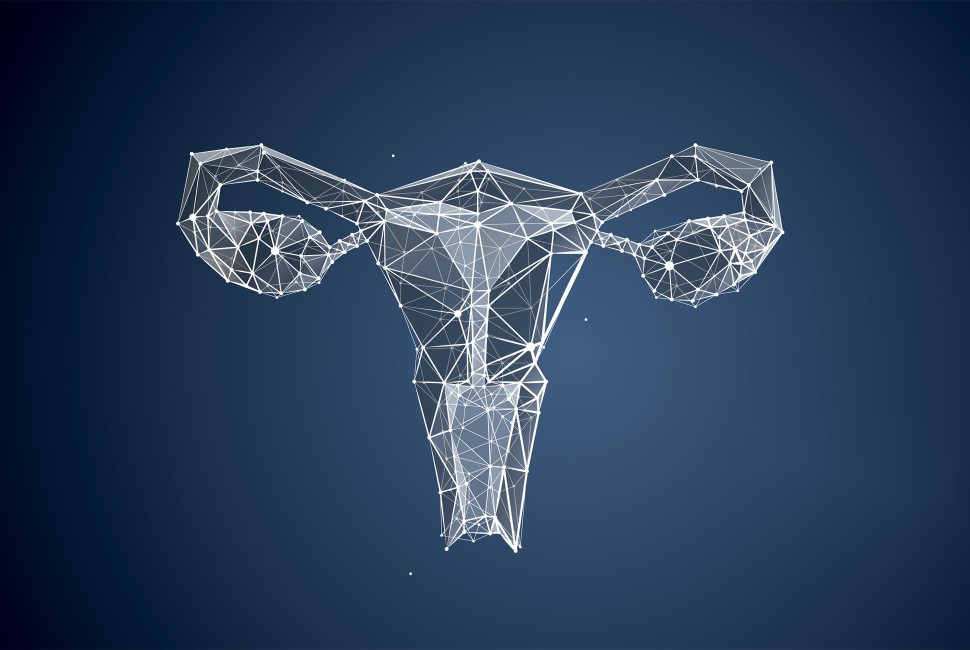Media Coverage
The work done by Northwestern University Feinberg School of Medicine faculty members (and even some students) is regularly highlighted in newspapers, online media outlets and more. Below you’ll find links to articles and videos of Feinberg in the news.
-
New York Times
–
Choosing to Skip Sex and Go Straight to I.V.F.
In February, in vitro fertilization, or I.V.F., was thrown into the spotlight when the Alabama Supreme Court ruled that frozen embryos in the state should be considered children. The decision led to a pause on I.V.F. procedures in parts of the state, and even a pause on shipping embryos out of state, to avoid potential criminal liability. I.V.F., however, is hardly guaranteed to be successful: The procedure still has a risk of miscarriage, though the likelihood is lower because the embryos have been genetically tested and only the most viable are typically implanted. “The vast majority of people who are doing it are truly desperate and have a medical reason for doing it,” said Tarun Jain, MD, a professor of obstetrics and gynecology at Northwestern University. “It is a very challenging, time-consuming, physically and emotionally draining process, and a big financial burden if your insurance doesn’t cover it.”
-
NBC 5 Chicago
–
Doctor offers insight on Princess Kate’s cancer diagnosis: Findings, treatment, prognosis and more
Kate, the Princess of Wales, revealed Friday she had been diagnosed with cancer in a stunning announcement following weeks of speculation about her health and whereabouts. Following news of the cancer diagnosis, NBC Chicago talked to Yazan Numan, MD, an oncologist with Northwestern Medicine, who touched on the likelihood of cancer being found during surgery, cancer treatment and a possible prognosis. Numan explained that getting diagnosed with cancer at an early age — like 42 years old in Kate’s case — is not very common but does happen. While it’s unclear where cancer was discovered, similar findings have been made during gallbladder surgeries for cystitis and appendectomies, the doctor said. “…She did say it’s a major abdominal surgery, so hard to speculate, but sometimes it could be due to some sort of a complication that was happening… Whether it’s like an interrupted infection or a bleeding, because of some sort of a perforation in her bowels or her stomach,” Numan said. “And once they went into operate, they did find the cancer and they had to deal with it after the fact.”
-
CNN
–
If antidepressants are killing your sex life, here’s what you can do
You’ve started taking an antidepressant, and it’s helping you to finally feel like life is worth living or that you can stop avoiding your friends’ texts. All seems right in the world — until the moment you realize your sex life has taken a hit. Some people lose their libido or ability to become aroused, while others have problems with genital sensitivity, genital lubrication, reaching orgasm or having satisfying orgasms, or ejaculation. Others experience more than one symptom, said Lauren Streicher, MD, clinical professor of obstetrics and gynecology at Northwestern University’s Feinberg School of Medicine. Streicher is also the founding medical director of the Northwestern Medicine Center for Sexual Medicine and Menopause. “The ripple effect is very, very significant,” Streicher said, sometimes causing low self-esteem, more depression or anxiety, anger or frustration. The science behind antidepressant-induced sexual dysfunction boils down to a few things: your neurotransmitters, blood flow and muscular system, all of which are controlled by the brain — “the most important sex organ,” Streicher said.
-
New York Times
–
How to Recognize the Most Common Form of Skin Cancer
Basal cell carcinoma is the most common form of skin cancer, but it can be easy to miss, or mistake for another skin issue. While it can be difficult for patients to identify, basal cell carcinoma — which is estimated to affect several million people in the United States each year — is very treatable. Here’s what to know about causes, prevention and treatment. Basal cell carcinomas are common in the areas of the body most exposed to the sun: typically the head, face, neck and arms, said Paras P Vakharia, MD, an assistant professor of dermatology at Northwestern University Feinberg School of Medicine. Most of the time, the lesions are “pink and pearly,” he said. “They almost look a little bit shiny,” he said. Basal cell carcinoma grows slowly, but it’s important to address the disease as soon as possible, doctors said. If the carcinoma is very small, it can be treated with a chemotherapy cream, Dr. Vakharia said. However, Dr. Vakharia said that a diagnosis of basal cell carcinoma should be a clear sign to patients that “they need to be more cautious with sun exposure.” He encouraged people to wear broad-brimmed hats that fully shield the face from UV rays and to use sunscreen with at least SPF 30 protection. Reapply sunscreen if you’re outside for an extended period of time, he added.
-
TIME
–
How to Stop Procrastinating at Bedtime and Actually Go to Sleep
This phenomenon is so universal that there’s a scientific name for it: “bedtime procrastination.” According to the researchers who coined it in a 2014 study, bedtime procrastination is “failing to go to bed at the intended time, while no external circumstances prevent a person from doing so.” We often delay sleep because we want to regain the control—and time—we lost during the day. But here’s the paradox: Instead of getting more control over our days, bedtime procrastinators end up sabotaging them. Using something that gives us a little hit of dopamine, like our phones, makes us (falsely) feel like we’re delaying the stress of the following day, says Sheehan Fisher, PhD, a perinatal clinical psychologist at Northwestern Medicine who works primarily with new parents. “One thing about sleep is that once you’re unconscious, you wake up to the next day,” he says.
-
WebMD
–
Treatments for Moderate to Severe COPD
There’s no cure for chronic obstructive pulmonary disease (COPD). But there are things you can do to stay active, breathe easier, and live longer — even if your condition is more advanced. Ask your doctor about all of your treatment choices. If you smoke, quit. “There’s nothing that we can do, medically or surgically, that is going to be as beneficial to managing and improving your COPD as stopping smoking,” says Benjamin Seides, MD, medical director of interventional pulmonology at Northwestern Medicine Central DuPage Hospital and health system clinician of pulmonary and critical care at Northwestern University Feinberg School of Medicine. He says you’ll also want to do the following: avoid lung irritants at home and at work, eat healthy and stay active, and get vaccines for flu, COVID-19 and pneumococcal diseases.
-
New York Times
–
How Many Steps Do You Really Need? That’s the Wrong Question.
We love counting steps. Maybe it’s because we like goals or else the constant reminder on our wrists of how far we’ve gone and need to go to hit a daily target. Or it could also be that study after study says walking is one of the most attainable ways to increase longevity. Finding hills to walk up is a good way to boost your fitness in a world where time is limited, said Sadiya Khan, MD, a cardiologist at Northwestern Medicine and a volunteer for the American Heart Association. Most studies, including the recent British one, show diminishing returns on step counts over about five miles. So instead of walking 12,000 or 15,000 steps to push your workout, walk uphill to keep your heart rate up. You can also walk uphill backward to make it even harder and target different muscles. The goal is to incorporate vigorous activity into your walking instead of staying at a moderate pace. Consider putting weight in your backpack to boost the intensity of your walk even more. Rucking, as it’s called, helps with strength training while increasing your heart rate, said Dr. Khan.
-
CBS News Chicago
–
2 more measles cases confirmed in Chicago for total of 10; one new case is at migrant shelter
The Chicago Department of Public Health on Wednesday announced two new confirmed cases of measles – one of which was in the migrant shelter in Pilsen where most of the cases have originated. Over the past few days, the city said it has administered over 900 vaccinees – bringing the percentage of people immune to measles at the shelter up to 95 percent or more. Larry Kociolek, MD, of Lurie Children’s Hospital also said more unvaccinated people are likely to get sick before the outbreak is over. The incubation period for measles is part of the reason why, Kociolek explained. “It could be two to three weeks before I develop symptoms, and so it usually takes about two or three weeks to know if the measures that we’re taking today are effective,” he said. “So the virus is actually pretty stable, where it doesn’t develop an ability to evade the immune response,” Kociolek said, “and so the vaccine that we have currently, that we have used for decades, is expected to be quite effective against measles forever, really.”
-
Yahoo! News
–
If You’re Over 65, You May Not Need These Common Medical Tests and Screenings
After the age of 65, many people find themselves in a healthcare provider’s office more frequently for help with managing a chronic disease or just to “keep an eye on” their health. Since having access to quality healthcare in the United States is not a given, being proactive about your health if you’re able is generally a smart move. That said, there can be such a thing as too much of a good thing—even when it comes to medical care. Many older adults don’t realize that some routine screenings and treatments may not be necessary and can even be harmful for them. A recent study highlighted the need for safeguards to avoid overtreating older adult patients, which can include unnecessary tests and screenings, particularly for prostate cancer (PSA test), urinary tract infections (UTI), and diabetes. “This shows that alerts like the ones used in this study can help curtail overuse of tests and treatments,” study lead author Stephen Persell, MD, MPH, professor of medicine at Northwestern University Feinberg School of Medicine, told Verywell. “We are always getting continuing education as clinicians. This type of nudge can help remind us of things we’ve learned previously when it is directly relevant to a patient we are working with.”
-
Fox News
–
Ask a doc: ‘Why are my eyes often bloodshot?’
Bloodshot eyes are often associated with late nights followed by early morning obligations. While this is indeed one cause of irritated eyes, other factors can contribute to the condition. Michelle Andreoli, MD, an ophthalmologist at Northwestern Medicine in Naperville, Illinois, shared with Fox News Digital some tips for treating red eyes at home. Over-the-counter artificial tears can be used to address irritation and wash allergens from the eye. Avoid decongestant (anti-redness) drops, Andreoli advised, because “they don’t solve the cause of the problem and can sometimes make redness worse in the long run.” Instead, she suggested using over-the-counter antihistamine drops to help with itchy eyes caused by seasonal allergies. (Always check with a doctor first.) A cool compress can also provide some relief.






